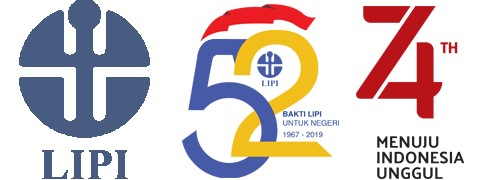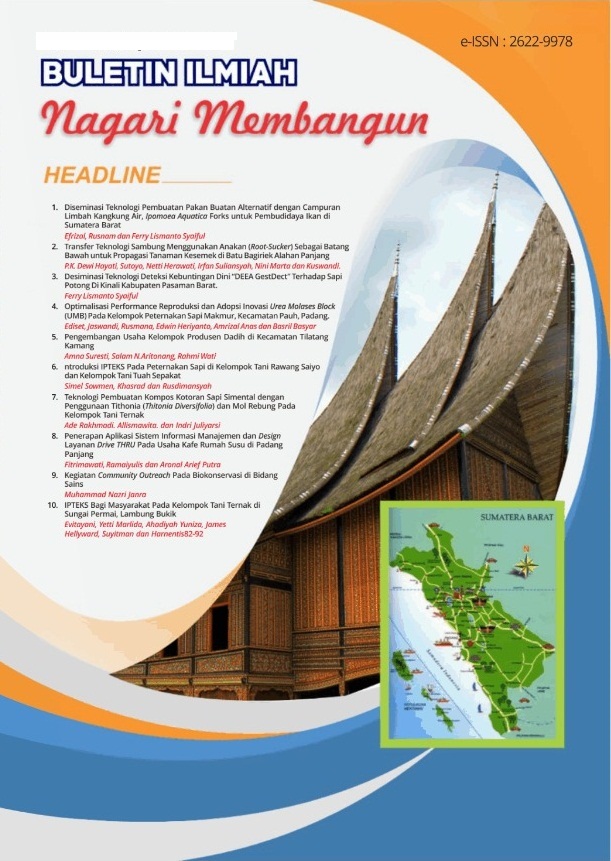SOSIALISASI SISTEM PEMBAYARAN NON TUNAI PADA JASA ANGKUTAN BUS TRANS PADANG DALAM RANGKA MENUJU CAHSLESS SOCIETY
Abstract
Since 17 August 2019, the Padang City Transportation Agency has implemented a full non-cash payment system for the Trans Padang bus public transportation service. Since the implementation of this policy, Trans Padang Buses no longer accept cash payments. Implementation of non-cash payments in collaboration with BRI using the Brizzi card. The policy of reaping the pros and cons due to the lack of public understanding of the importance of using non-cash payments is one cause of problems in implementing the non-cash payment system. This activity aims to provide education and outreach to the community through student groups regarding the importance of implementing a non-cash payment system in the digital economy era and the transition period towards a cashless society. This activity was carried out at SMK Teknologi Plus, located at Jalan Belanti, Lolong, Padang, which was attended by 125 students. The method used is in the form of socialization. Resource persons for this activity came from three agencies relevant to the activity's objectives, namely from Bank Indonesia, Trans Padang, and representatives from BRI as the issuer of the Brizzi card, which is used as a means of payment for Trans Padang bus services. The socialization activities were warm and full of kinship; even the participants participated enthusiastically. This activity shows an increase in public understanding of the importance of using non-cash payments. At the end of the activity 20 lucky participants were given a souvenir in the form of a Brizzi card with a balance of @ IDR 50,000 as a non-cash payment.
Downloads
References
Bank Indonesia. 2019. Laporan Perekonomian Provinsi Sumatera barat
Dias, J., M.J. Silva., and M.H.A. Dias.1999. The demand for digital money and its impact on the economy. Brazilian Electronic Journal of Economics, Vol. 2. No.2.
Keputusan Wali Kota Padang Nomor 14.2 Tahun 2019 Tentang Penggunaan Uang Elektronik sebagai Alat Transaksi Pembayaran Tarif Angkutan Massal Trans Padang
Manning, Jon. 2020. Contactless Payments in the Era of Coronavirus. Cashless Economy Report. MYOB. www.rba.go.au
Mishkin, Frederic S, dan Philip E. Strahan. 1999. What Will Do to Financial Structure. National Bureau of Economic Research, Cambridge.
Peraturan Bank Indonesia Nomor 19/12/Pbi/2017 Tentang Penyelenggaraan Teknologi Finansial
Peraturan Wali Kota Padang Nomor 52 Tahun 2015 tentang Pedoman Penyelenggaraan Tiket Elektronik pada angkutan massal Trans Padang
Pramono, B. et al. 2006. Dampak Pembayaran Non Tunai Terhadap Perekonomian dan Kebijakan Moneter. Working Paper Bank Indonesia No.11
Sahabat, I. 2018. Pilihan rumah tangga perkotaan dalam penggunaan pembayaran tunai dan elektronis di Indonesia: Pendekatan model pilihan diskrit. Disertasi. Universitas Indonesia
Sanjaya, F. 2014. Karakteristik pengguna dan persepsi terhadap operasional bus Trans Padang koridor I. Thesis. Universitas Andalas.
Sunariani, N. N., and I. G. N. K. Ariwangsa. 2016. Less cash society, pemalsuan uang, money laundering, inflasi, dan nilai tukar. Jurnal Manajemen & Bisnis. 13 (1): 1892-8486.
Wisana, dan G K. Dewa. 2017. Dampak Go-Jek terhadap Perekonomian Indonesia. Kerjasama Lembaga Demografi Universitas Indonesia dan Go-Jek Indonesia.





















